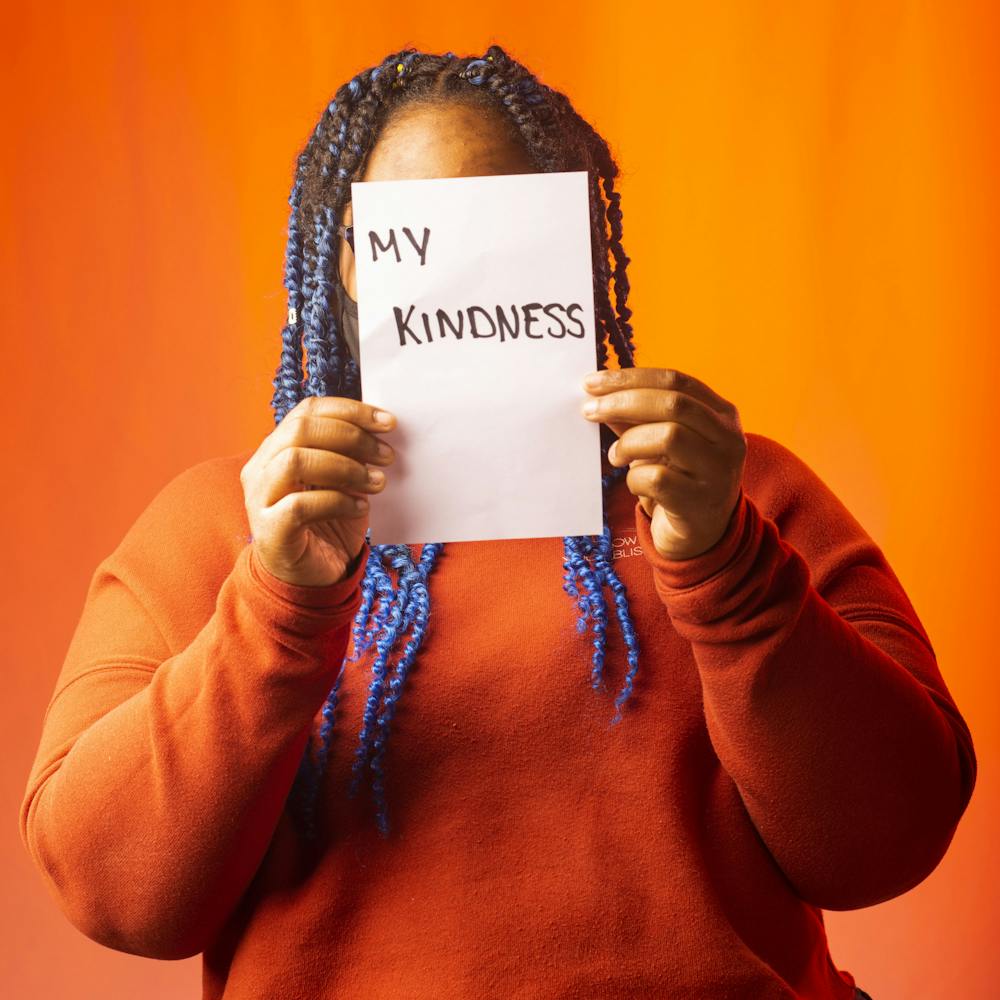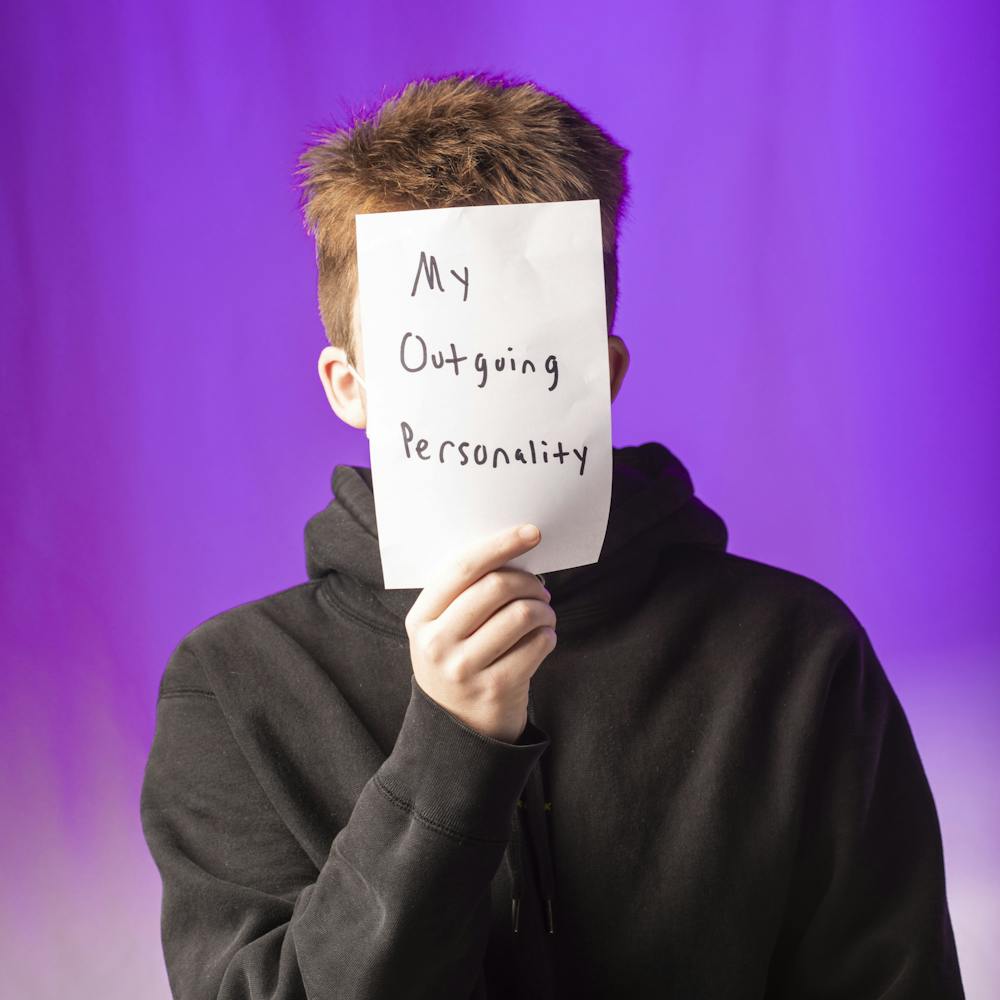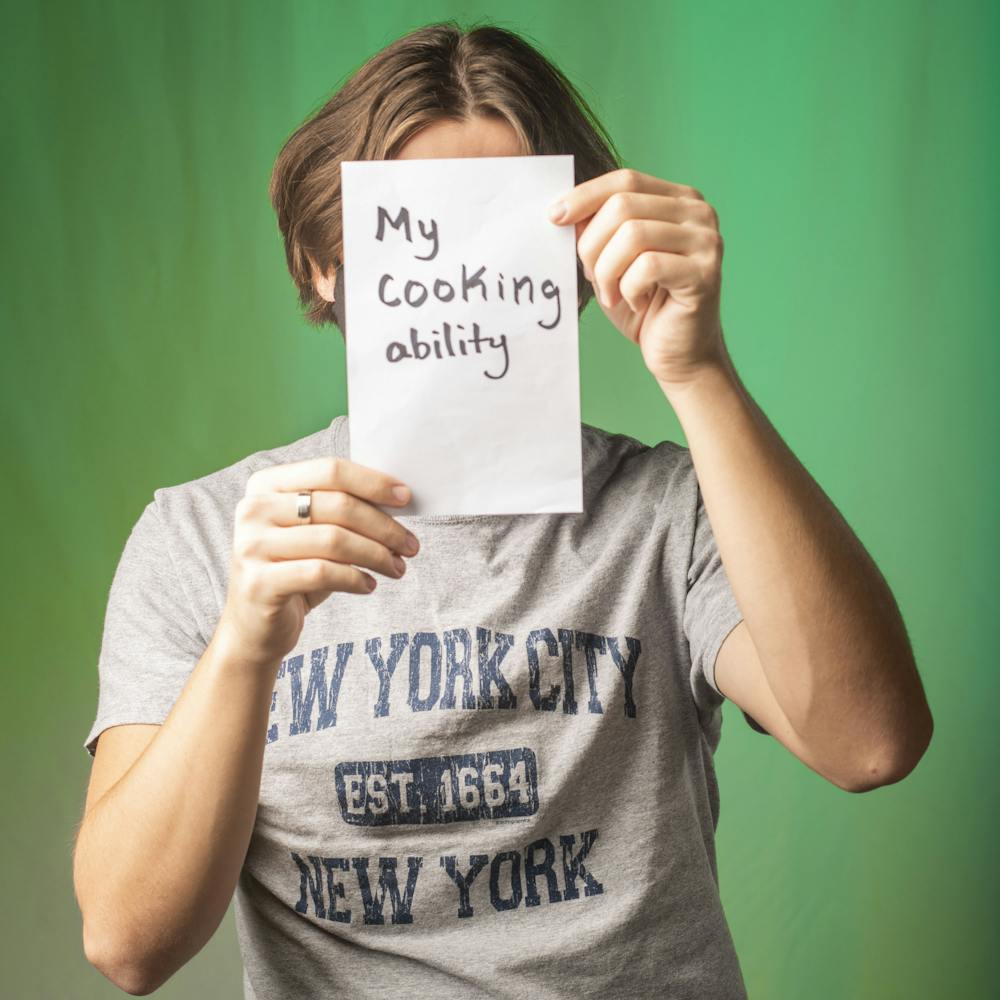The four years in college are said to be the best years of your life.
The accuracy of this cliché is often debated, but regardless, many students can attest to their self-confidence playing a large role in their college experience.











The four years in college are said to be the best years of your life.
The accuracy of this cliché is often debated, but regardless, many students can attest to their self-confidence playing a large role in their college experience.
Dietetics and neurology senior Rachael Stohlin said it was significantly more challenging to make good memories and live in the moment during the parts of her college career in which she didn’t feel confident in herself.
“I hope that college students make an effort to really build this part of their life because I think going through college without confidence really leads you to miss out on a lot during these years,” Stohlin said. “Just being able to make more memories, be happier with the work you did at the end of the day, and all-around, it's a more positive experience in college.”
Throughout her life, Stohlin said her self-confidence has been somewhat of a roller coaster. She hit lows in high school before finally finding a sense of satisfaction in her freshman year of college. But that was short-lived.
Her self-confidence reached an all-time low in her third year at MSU. That’s when she decided she needed to work on herself.
“I was just like, ‘I can't – we're not doing this anymore. We're turning this around,’” Stohlin said. “Very ironically, that mind frame shift happened right when COVID hit, so then I was able to use that remote set up to do a lot of introspection and thinking. … Coming out of my third year and going into my fourth, I was back where I was in the first year. I was thriving again, which was very nice.”
The transition to college can also bring about hardship with no longer being surrounded by loved ones to motivate, validate and support you.
Director of Human Resources for the Associated Students of Michigan State University, or ASMSU, Kobi Sunday highlighted the need to find confidence within oneself.
“You obviously want support structures, but it makes you codependent on them,” Sunday said. “If they're not able to give you the confidence – they're struggling in life or they don't understand what you need – it means that you won't be able to do the things that you need to do to go through life.”
Since becoming a math undergraduate learning assistant, mathematics education junior Aubrey Vellmure has worked on feeling like she was enough to be instructing a college-level class.
“I'm a lot more confident, even in the past couple of weeks, getting up in front of a class and explaining stuff,” she said. “My first week when I did that, it was kind of stressful because it was all people … really close to my age group that I had to go up in front of and be like ‘Oh, I'm good enough at math to be teaching this to you.’"
According to Healthline, imposter syndrome is defined as “feelings of self-doubt and personal incompetence that persist despite your education, experience and accomplishments.” Imposter syndrome is another thing that may influence confidence, especially in college students.
In his role in human resources, Sunday is heavily involved with the hiring process at ASMSU. He explained that he has talked to many interviewees who have the same feelings that Vellmure once did.
“It's interesting because someone who will be by far the most accomplished person, someone we think is going to be the instant mark for the job, will come in and they'll seem super unconfident in themselves,” Sunday said.” They seem like they don't feel like they fit in or that it's a super big, long shot or something like that.”
Moreover, Sunday has witnessed and experienced feelings of being a fraud in social settings. Sunday noted this is especially prevalent in his graduating class, the class of 2024, because the pandemic forced them to start college virtually.
“They spent so much time virtually or quarantined in their house, and it's hard to really connect with people in a social way anymore without feeling a lot of anxiety and overthinking what you're doing,” Sunday said.
Sunday admits he still deals with his own imposter syndrome.
“As I've grown, I've tried to have the mindset that I'm in the position that I am and that people invited me to things for a reason," Sunday said. "Even if I can't see it, there is a reason. So I feel like I'm doing very well in my professional career and my extracurriculars. I'm a little bit ahead of my academics. All of those things, I have to believe that there's a reason for that, even if I can't personally see it yet.”
Since 2019, Stohlin has worked with body-positive groups on campus. Under the surveillance of MSU dietitians, she has led discussion groups that talk about the evolution and foundation of beauty standards, body image and body confidence.
Support student media! Please consider donating to The State News and help fund the future of journalism.
“Going into leading those groups was one of the times of my life when I was so lacking in confidence regarding my appearance, so I always thought it was kind of ironic that I was leading one of these,” Stohlin said. “Then, coming out of that, it was a totally different experience where I no longer had as much of an insecurity about who I was.”
When humanities-prelaw freshman Amber Autrey was in high school, she believed her social life had extreme importance in the grand scheme of things.
“I didn't have much confidence in high school,” Autrey said. “I hung out with a smaller group. It was just me and two other people, and I was always anxious that if I lost them as my friends I wouldn't really have other people to hang out with, so I was very much conscious of what I did and how I acted. I wasn't really confident in who I really was when I was the kind of person who I am when I'm by myself.”
When Autrey got to college, she realized she was finally able to put her true self on display.
“Now that I'm in college, I have hindsight of being able to look back at high school and realize it wasn't really that deep,” she said. “High school, now, seems so far gone and insignificant to who I really am, and if I find myself getting insecure in myself, I just think I'm going to graduate from college and I'm going to look back at it and I’m gonna be like ‘College isn't really important socially.’ I just remind myself that in hindsight, I’ll be fine — just act how I want to act.”
Not everyone undergoes a sudden increase in confidence once transitioning to college, however. Managing such a major change in academic, social and personal life can sometimes cause a decline in confidence, as was the case for biochemistry and molecular biology senior Maddison Ford.
“Once I got to college, (my confidence) kind of dipped a little bit, especially for the first year,” Ford said. “I was not sure what to do. There were a lot of new people trying to do a lot of new things. Also at that time, you're kind of comparing yourself to everybody. Your self-image goes down, and you're trying to build yourself up.”
The desire to fit in is quite common, especially during teenage years. Oftentimes, this is associated with appearance or personality. However, people can struggle with a myriad of insecurities, causing them to change minuscule parts of their identities to fit in.
“At some point in my life, I was insecure about my own music taste,” Stohlin said. “The stuff that I enjoyed, for some reason, I didn't feel like that's what I should enjoy.”
Another common source of insecurity for some is their cultural background. Sunday is the treasurer of MSU’s Asian Pacific American Student Organization where he does work around ensuring that people are confident and positive in their culture.
“If you feel like you have to withhold something from the people around you, it's nearly impossible to be confident,” Sunday said. “Whether that's what food you like to eat, how you like to dress, what pronouns you use, where you come from, feeling like you have to lie about it or downplay something that's really important to you affects your confidence.”
People can easily act and be confident in front of large groups or gatherings of friends, but when they are alone behind closed doors, it can be a different story.
Vellmure was one of these people.
“I'm so much more comfortable just sitting by myself and having lunch or going somewhere or getting my groceries by myself,” she said. “I'm so much more confident by myself because you just get so used to it in college.”
Vellmure’s growth in confidence was natural – she was forced into an environment lonelier than what she was used to and had to adapt. Stohlin, on the other hand, intentionally worked on increasing her confidence.
Recently, Stohlin came across a quote by author Glennon Doyle that resonated with her:
“I will not stay, not ever again — in a room or conversation or relationship or institution that requires me to abandon myself.”
“I think that’s essentially what I’ve been practicing in recent years where if I find myself doing something that does not align with what I think I am, then I just totally pull myself from that because, at that point, it's not benefiting me in a way,” Stohlin said.
Along with all the personal advantages of having self-confidence is how the positive energy radiates to other people.
“I think if a person is more confident in who they are and in their abilities and their strengths, then I feel like they can radiate a little bit and help bring light to other people's days,” Ford said.
Ford urges individuals to not be too let down by a dip in confidence.
“I just think it's important to recognize everyone is in different stages of their life, and I think that confidence comes and goes throughout life,” Ford said. “I don't think that once someone becomes confident, they're always going to be confident, but just keep working at yourself.”
Although it can sometimes be difficult to see, each and every person on this planet has strengths that they should place their faith in, Sunday said.
“You have something to bring to the table, whether it's socially, professionally, academically, all that jazz,” Sunday said. “You just have something to bring to the table everywhere, so be confident in yourself. Sit down at the table, voice yourself and who you are and be true to yourself.”
This story was in our Dec. 7 print edition. Read the full issue here.